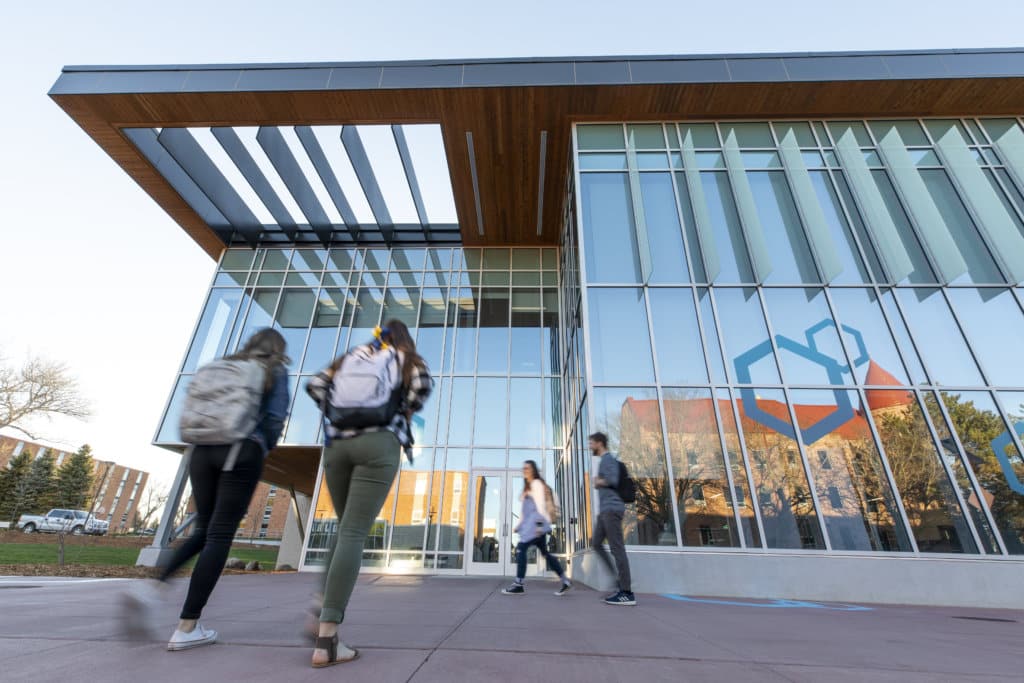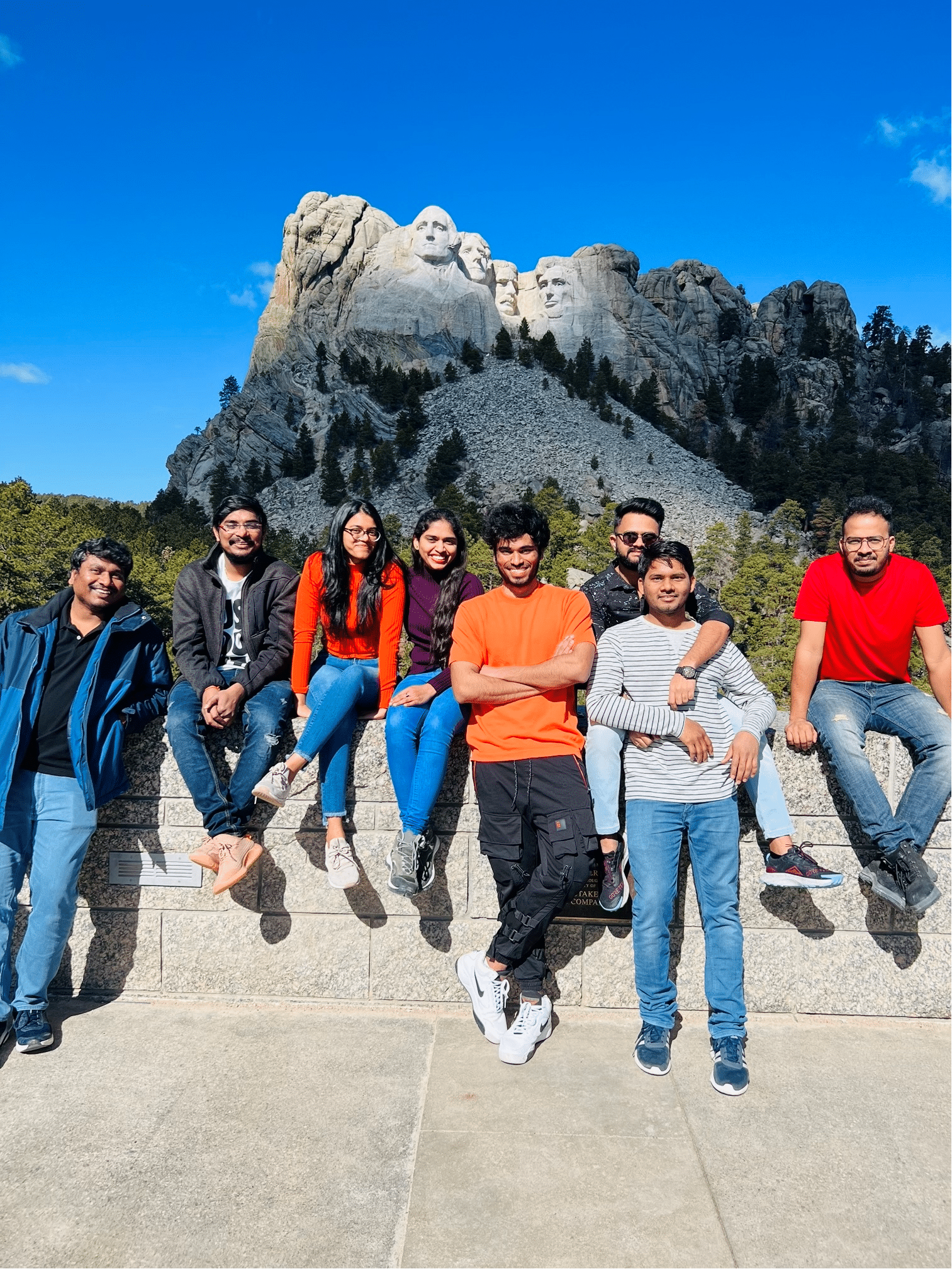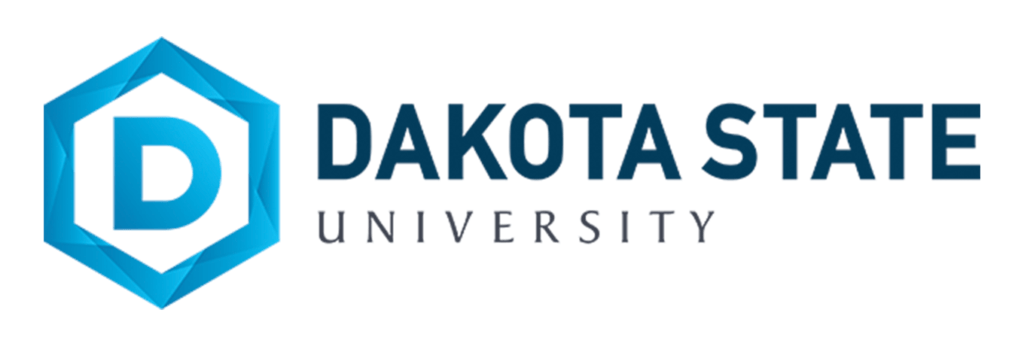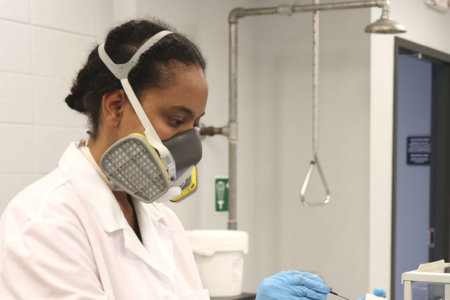Dakota State University (DSU) Computer Science student Amir Kemal was inspired by a real-life tweet to do some real-life research on fake Twitter domains.
In a 2018 tweet, the former mayor of New York left out a space after a period. The resulting word (G-20.In) turned out to be a real domain name, so Twitter automatically created a hyperlink. This “fake domain” name was then purchased by an individual who created their own nefarious message. This process is known as “sniping.”

Dakota State University’s carefully curated programs prepare students to join the workforce. Source: Dakota State University.
Kemal explains how fake domains like these have the potential to lead users to a site with malicious intent. His fascination with sniping led him to apply for a research grant that would allow him to deepen his knowledge in this area. Last fall, he was awarded a Student Mentored Research Initiative (SRI) grant to do just that.
“This project will be a way to potentially make the social media platform safer, which is what computer scientists want to do,” says Kemal. “I thought research was supposed to be very hard, but it’s not like that. A research project is as simple as solving a problem.”
Dakota State University is known as a forward-thinking, cutting-edge, and relevant higher learning institution, and students like Kemal are the reason behind this. At DSU, excellence in cybersecurity, education, and research are central to its mission.
DSU is one of only four university-based centers in the nation designated as a Cyber Defense Consultative Regional Resource Center, and holds three other prestigious designations as Centers of Academic Excellence from the National Security Agency, and the Department of Homeland Security.
The university’s 99% placement rate for its latest graduating class is another. Computer science graduates are set to join a bullish job market — from 2021 to 2031, employment of information security analysts is projected to grow 35%, much faster than the average for all occupations.
For students like Tarek Abdelmotaleb, the benefits of their DSU degree are even more tangible and immediate than these stats and accolades.
The master’s degree student in Computer Science, with a specialization in Cyber Operations, attended DEF CON, one of the oldest and largest continuously running hacker conventions. The competition is one of the best ways to stay current on emerging trends, threats, research, gain practical experience, and demonstrate one’s work to recruiters. “I’d like to go again,” Ahmed says.
Sometimes, DSU projects take students across the world. Last June, DSU doctoral student Jason Mixon, and master’s student Charles Novak went to Gothenburg, Sweden through a research exchange program. The 10 week program explored a new area of artificial intelligence (AI) called edge learning — specifically, how to keep data at or near the source of edge devices (like smart watches, self-driving cars), “on the edge,” instead of sending it back to a central processor.
“We had a blast, and met a lot of great people,” Mixon says. “They have a great facility at AI Sweden, and there is a ton of history and things to do in Gothenburg.”
As part of the U.S. Cyber Team, three DSU Trojans — triumphed at the 1st International Cybersecurity Challenge held in Athens, Greece. The blended cybersecurity-meets-esports program, tested athletes in cyber categories including forensics, cryptography, reverse engineering, and attack & defense.
“Seeing where we stack up against top talent from around the world has been eye-opening,” says graduate Josh Klosterman. “The challenges, especially in the Capture the Flag competition, were pretty grueling. You show up. You work your tail off. You do the best you can. It’s an elite level of competition.”
For Dakota State University, victories extend beyond those accumulated at competitions. Kruttika Sutrave found hers in a lab. The PhD in Information Systems student received a Graduate Research Initiative (GRI) grant to research “Public Outlook Towards Pandemic Vaccination: Development of a Framework.” Through sentiment analysis of tweets, she aims to understand what the factors are that lead to positive and negative sentiment.
But more profound still, is what DSU students do with their knowledge and experiences. For Sutrave, it’s about making a difference. Her interest in research related to the medical field is inspired by her desire to “help make people’s lives easier and have better lifestyles.”
“I hope to be a professor at a university, continue my research in this field, and be able to make a significant impact.”
If this is the future you envision, learn more about DSU’s international admissions here. DSU offers a BS in Computer Science, BS in Artificial Intelligence, BS in Cyber Leadership and Intelligence, BS in Cyber Operations, MS in Information Systems, MS in Analytics, and MS in Computer Science.
Follow Dakota State University on Facebook, Twitter, Instagram, LinkedIn, and YouTube













